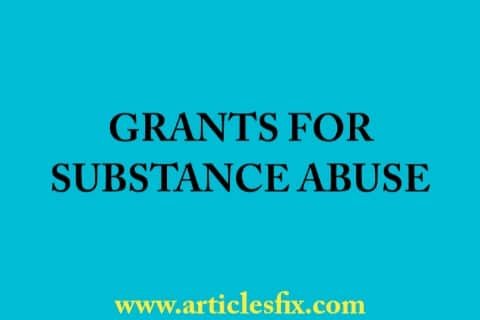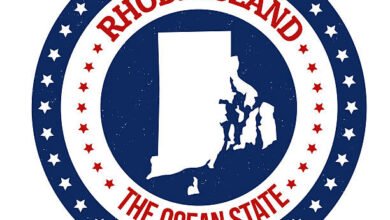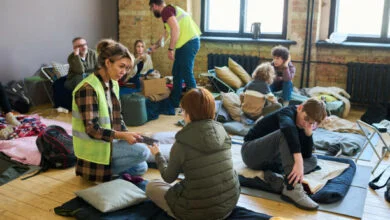Grants For Substance Abuse Treatment In The United States

In the United States, there are many organizations that provide grants for substance abuse to help those struggling with it. Grants can help with treatment, recovery, and research.
As the principal federal agency financing academic studies on drug use and its effects, the National Institute on Drug Abuse (NIDA) is the source of this funding. Its goal is to develop the field of research on drug abuse and addiction and to use what it learns to advance both individual and societal health. Following years of study, it is now known that addiction is a chronic, curable brain illness from which one can recover.
The millions of Americans who have been diagnosed with substance use disorders (SUDs) and their loved ones now have hope thanks to research funded by NIDA that has resulted in the creation of efficient preventative and treatment approaches.
This article will provide tips on how to get grants in the United States for those struggling with substance abuse.
What are some commonly abused substances?
There are many different types of substances that can be abused, and each one comes with its own set of risks and consequences. Some of the most commonly abused substances include:
- Alcohol
- Tobacco
- Marijuana
- Cocaine, and
- Prescription drugs.
Each of these substances can lead to addiction and other serious health problems. So, if you or someone you know is struggling with substance abuse, it’s important to get help as soon as possible. And this help could come in many forms as there there are many resources available to help people in the United States get the treatment they need.
One way to get help for substance abuse is to look into grant programs. There are a number of organizations that offer grants to help people pay for treatment. The Substance Abuse and Mental Health Services Administration (SAMHSA) is one such organization, and it offers grants for a variety of different programs, including treatment and prevention programs. You can search for grant opportunities on their website or contact their office directly for more information.
Another way to find grant opportunities is to contact your state’s Substance Abuse Prevention and Treatment Agency (SAPTA). SAPTA can provide you with information about grant programs in your state that may be able to help you pay for treatment. You can also search the State Substance Abuse Grant Directory in your state.
Symptoms of drug abuse?
It can be difficult to tell if someone is abusing drugs, but there are some common signs and symptoms. They may include:
- Changes in appearance, hygiene, or weight
- Sudden mood changes or outbursts of anger
- Withdrawal from friends and activities
- Lying or stealing
- Missing school or work
If you suspect that someone you know is abusing drugs, the best thing to do is talk to them about it. And though they may be reluctant to open up, it’s important to let them know that you’re there for them and want to help.
What are the government agencies that are working to prevent drug abuse in the United states?
- The National Institute on Drug Abuse (NIDA) is a government agency that is working to prevent drug abuse in the United States. NIDA is responsible for conducting research on the causes and consequences of drug abuse and addiction. NIDA also provides funding for prevention and treatment programs across the country.
- The Substance Abuse and Mental Health Services Administration (SAMHSA) is another government agency that is working to prevent drug abuse in the United States. SAMHSA provides funding for substance abuse prevention and treatment programs. SAMHSA also operates the National Helpline, which provides information and referrals for people who are struggling with substance abuse.
- The Office of National Drug Control Policy (ONDCP) is a government agency that is working to reduce drug use and its consequences in the United States. ONDCP develops policies and strategies to reduce drug demand and supply, as well as funds prevention and treatment programs.
- The Department of Justice (DOJ) also works to prevent drug abuse in the United States. The DOJ enforces federal laws related to drugs, including trafficking, manufacturing, and distribution. The DOJ also funds drug courts, which provide treatment services to non-violent offenders with substance abuse disorders.
What is the difference between drug abuse and drug misuse?
There is a big difference between drug abuse and drug misuse. Drug abuse is using a drug without a prescription or using a prescription drug for purposes other than what it was prescribed for. Drug misuse is using a drug in a way that can lead to addiction or dependence.
How to get grants in the United States for substance abuse?
There are many federal and state grants available for those struggling with substance abuse. The most common type of grant is the federal Substance Abuse Prevention and Treatment Block Grant, which provides funding to states to help them develop and implement programs to prevent and treat substance abuse.
Other federal grants include the Substance Abuse and Mental Health Services Administration’s (SAMHSA) Grants for the Benefit of Homeless Individuals (GBI) program, which provides funding to organizations that serve homeless individuals with mental illness or substance abuse disorders; and the SAMHSA Minority AIDS Initiative, which funds organizations working to reduce HIV/AIDS disparities among minority populations.
State governments also offer a variety of grants for substance abuse prevention and treatment. For example, the California Department of Health Care Services offers grants for programs that provide services to pregnant and parenting women with substance abuse disorders, as well as their children.
To learn more about grants available in your state, contact your state’s substance abuse agency or visit the SAMHSA website.
What are the eligibility requirements for getting grants?
There are a number of different government grants available to help those struggling with substance abuse, but each has its own eligibility requirements. The most common requirement is that the applicant be a U.S. citizen or legal resident, although some programs may also have income requirements. Other eligibility factors can include whether the applicant is pregnant, has dependent children, is currently enrolled in school, or has been recently discharged from treatment.
How to apply for grants?
There are many ways to get grants in the United States for substance abuse. The most common way is to go through the government’s website and look for the grant that you want. There are also many private organizations that offer grants for substance abuse. To find a list of these organizations, you can search online or ask your local library for resources.
Tips for writing a grant proposal
There are a few key things to keep in mind when writing a grant proposal for substance abuse programs in the United States. First, make sure to clearly state the problem that your program is trying to solve. Be as specific as possible about the population you serve and the needs of that population. Next, lay out a detailed plan for how your program will address those needs.
Also, be sure to include information about your organization’s experience and qualifications in this section. Finally, be sure to show how your program will be sustainable over time and how it will impact the community in a positive way. By following these tips, you’ll be well on your way to writing a successful grant proposal for substance abuse programs.
What is a Samhsa grant?
The Substance Abuse and Mental Health Services Administration (SAMHSA) is a federal agency that provides grants to states and organizations to help address the needs of people with substance abuse disorders. SAMHSA grants can be used for a variety of purposes, including treatment, prevention, and research.
READ ALSO: IE University Master’s Scholarship Grants in Spain 2022
How do I submit a Samhsa grant?
The Substance Abuse and Mental Health Services Administration (SAMHSA) is the federal agency responsible for funding grants to states and organizations to support prevention and treatment of substance abuse.
To submit a grant proposal to SAMHSA, you must first register with Grants.gov. This is the website where all federal grant opportunities are posted. Once you have registered, you can search for open grant opportunities by keyword, category, or funding opportunity number.
When you find an open grant that you are interested in, you will need to download the application package. This will include detailed instructions on how to complete the application and what materials you will need to submit.
Once you have completed the application, you will submit it electronically through Grants.gov. SAMHSA will review all applications and award grants to those that they deem most likely to be successful in meeting their stated goals.
About Substance Abuse Block Grant (SABG)
The Substance Abuse Block Grant (SABG) is a federal grant that provides funding to states and territories to support the prevention and treatment of substance abuse. The SABG program is administered by the Substance Abuse and Mental Health Services Administration (SAMHSA).
The SABG program was created in 1993, and is the largest block grant programs dedicated to substance abuse prevention and treatment. The SABG program provides funding for a wide range of activities, including:
- Prevention activities, such as public education campaigns and school-based programs
- Treatment services, such as residential treatment facilities and outpatient counseling services
- Recovery support services, such as peer support groups and case management services
The SABG program is a key source of funding for many substance abuse prevention and treatment programs across the United States. If you are interested in getting grant funding for your substance abuse program, you should contact your state or territory’s SABG administrator.
Substance Abuse Block Grant (SABG) Priority Populations
The Substance Abuse and Mental Health Services Administration (SAMHSA) provides the Substance Abuse Block Grant (SABG) to states in order to help them address the problem of substance abuse among priority populations. Priority populations for the SABG include those who are:
- Homeless
- Unemployed
- Living in rural areas
- Justice-involved
- Veterans
- Medically underserved
What does SABG cover?
The Substance Abuse and Mental Health Services Administration’s (SAMHSA) Block Grants (SABG) provide funding to States and Territories for the prevention and treatment of substance abuse, including alcohol and drug abuse. SABG funds can be used for a variety of activities, including but not limited to:
- Developing and implementing prevention programs
- Providing early intervention services
- Improving access to treatment services
- Enhancing the quality of substance abuse treatment services
- Supporting recovery from substance abuse
What about primary prevention efforts?
There are many ways to prevent substance abuse, but one of the most important is primary prevention. Primary prevention efforts focus on preventing substance abuse before it ever begins.
There are many different prevention strategies that can be used, but some of the most effective include:
- Educating people about the risks and consequences of substance abuse
- Providing support and resources for people who are at risk for developing a substance abuse problem
- Creating policies and regulations that make it harder for people to access substances of abuse
- increasing awareness about substance abuse and its impact on communities
Primary prevention is an important part of reducing the overall rates of substance abuse in the United States. And the idea is that if we take steps to prevent substance abuse before it starts, we can make a huge impact on the health and well-being of our nation.
Who are primary prevention efforts aimed at?
There are a variety of primary prevention efforts aimed at reducing substance abuse. One type of prevention targets individuals who are at risk for abusing substances. This can include people who have a family history of substance abuse, who have mental health disorders, or who have experienced trauma. Prevention efforts targeting at-risk individuals often focus on providing support and resources to help them avoid using substances.
Another type of primary prevention focuses on the wider community. This can involve public education campaigns about the risks of substance abuse, implementing policies to make substances less available, and increasing access to treatment and recovery services. Community-level prevention efforts are important for creating an environment that supports healthy choices and reduces the overall rates of substance abuse.
About the National Institute on Drug Abuse (NIDA)
The National Institute on Drug Abuse (NIDA) is the leading federal agency that conducts research on drug abuse and addiction. NIDA is a part of the National Institutes of Health (NIH), the world’s largest medical research agency. NIH is made up of 27 institutes and centers, each with a specific research focus.
NIDA’s mission is to advance science on the causes and consequences of drug use and addiction and to apply that knowledge to improve individual and public health.
NIDA funds most of the world’s research on the health aspects of drug abuse and addiction. The institute also plays a major role in helping to transfer this knowledge from the laboratory to the real world.
NIDA supports more than 1,100 research grants at more than 600 institutions nationwide. These grants support basic, clinical, and translational research on drug abuse and addiction, from early-stage discovery to later-stage implementation studies.
If you are looking for funding for your own substance abuse research project, start by checking out NIDA’s website. The site includes information about NIDA’s grant programs, how to apply for a grant, and lists of current opportunities that are available to you.
Finally: How can I make myself drug free?
There are many ways that people can make themselves drug free. One way is to get involved in a substance abuse treatment program. There are many different types of programs available, and they can be very helpful in getting you on the road to recovery.
Another way to make yourself drug free is to get involved in a 12-step program such as Alcoholics Anonymous or Narcotics Anonymous. These programs provide support and guidance for people who are struggling with addiction and could prove to be just what you need to get your life back on track.
Takeaway
There are many ways to get grants in the United States for substance abuse, but the most important thing is to put in the work and be persistent. Also, there are a number of government agencies and private organizations that offer funding for substance abuse treatment, so it’s important to do your research and find the one that best suits your needs. After that, don’t forget to talk a bold step by actually putting in for whatever the agency or organization has to offer.
Also, keep in mind that you may need to provide financial documentation or prove that you’re actively working towards sobriety in order to qualify for some grants, but don’t let that discourage you from applying. With a little bit of effort, you can find the perfect grant to help you pay for your substance abuse treatment. So, go for it.




